If you’re a man in the throes of addiction, seeking help from a recovery center can be a life-changing decision. But finding the right men’s recovery center can be overwhelming. If you or a loved one is seeking treatment for addiction, this blog post aims to guide you through the process—from highlighting the benefits of all-male care to explaining what to look for in a men’s recovery center.
What Is a Men’s Recovery Center?
A men’s recovery center is a specialized facility offering tailored addiction treatment for men, addressing their unique challenges. These centers provide evidence-based therapies, counseling, and support groups in a gender-specific environment. Programs often focus on masculinity, relationships, and coping skills. Services may include detox, residential treatment, outpatient programs, and aftercare. The goal is to help men overcome addiction and rebuild their lives.

Why Should Men Choose a Men’s Recovery Center?
Many men thrive in a men’s recovery center because it offers a supportive environment where they can openly discuss their struggles with addiction without fear of judgment. These centers tailor their programs to address specific issues men commonly face in addiction and recovery, fostering a deeper understanding and more effective treatment. Additionally, being surrounded by peers who share similar experiences can provide a sense of camaraderie and accountability crucial for successful recovery.
Benefits of a Men’s Recovery Center
There are many benefits to choosing a men’s recovery center in your search for addiction treatment for men, including:
- Shared Experiences: Men often face unique societal pressures and expectations related to masculinity, which can influence their experiences with addiction. In a men’s-only recovery center, individuals can share these experiences without fear of judgment or misunderstanding from those who may not relate.
- Openness and Vulnerability: Some men may find it easier to be open and vulnerable about their struggles in a same-gender environment. They may feel more comfortable discussing sensitive issues such as trauma, emotions, and relationships with peers who share similar experiences and perspectives.
- Focus on Gender-Specific Issues: Men’s recovery centers can tailor their programs to address specific issues that men commonly face in addiction and recovery. This might include topics such as anger management, communication skills, fatherhood, and redefining masculinity in healthy ways.
- Reduced Distractions: Removing the presence of individuals of the opposite gender can minimize distractions and potential triggers for some men. This allows them to focus more fully on their recovery journey without additional social or romantic pressures.
- Building Support Networks: Creating a supportive community of peers going through similar experiences can be essential for recovery. In a men’s recovery center, men can form strong bonds and support networks that can extend beyond the duration of their stay in treatment.
- Increased Accountability: Accountability can be a crucial aspect of recovery. In a gender-specific environment, men may feel more accountable to their peers and more inclined to hold each other to high standards of behavior and progress.
- Comfort and Safety: Some men may feel more comfortable and safe discussing personal issues, traumas, or concerns in an all-male setting. This can foster a greater sense of trust and security, which are vital for effective therapy and healing.

IF YOU OR A LOVED ONE IS STRUGGLING, REACH OUT TODAY.
What to Look For In A Men’s Recovery Center
When comparing different addiction treatment for men options, here are some key components to consider and prioritize. The Grove follows all these standards and you can read more about us here:
- Accreditation and Licensing: Ensure the center is accredited and licensed by relevant authorities. This ensures that the facility meets specific standards of care and professionalism.
- Evidence-Based Treatment Approaches: Look for centers that offer evidence-based treatment modalities such as cognitive behavioral therapy (CBT), dialectical behavior therapy (DBT), or motivational interviewing. These approaches have been proven effective in treating addiction.
- Qualified Staff: Check the qualifications and experience of the staff, including therapists, counselors, and medical professionals. They should be trained in addiction treatment and ideally have experience working with men specifically.
- Tailored Programs for Men: Men may have unique needs and experiences in recovery. Look for a center that offers programs specifically designed for men, addressing issues such as masculinity, relationships, and societal pressures.
- Holistic Approach: A good recovery center will offer a holistic approach that addresses not only the addiction but also mental health, physical health, and overall well-being. This might include fitness programs, nutritional counseling, and mindfulness practices.
- Aftercare Support: Recovery is a lifelong journey, and aftercare support is crucial for maintaining sobriety. Look for a center that offers comprehensive aftercare planning and support services to help individuals transition back into their daily lives.
- Family Involvement: Addiction affects not only the individual but also their family and loved ones. A recovery center that involves family members in the treatment process can help build a strong support network for long-term recovery.
- Facility Environment: The environment of the recovery center can play a significant role in the healing process. Consider factors such as location, amenities, and the overall atmosphere to ensure it feels safe and conducive to recovery.
- Peer Support: Group therapy and peer support can be incredibly beneficial in recovery. Look for a center that offers opportunities for men to connect with and support each other in their journey toward sobriety.

Why You Should Choose The Grove for Men’s Recovery
As mentioned above, there’s immense value in gender-specific treatment for addiction. At The Grove Recovery, we understand the unique needs of men in the recovery process. Our personalized treatment plans, grounded in behavioral science and evidence-based methodologies, are tailored to address the needs and challenges men face in recovery. From cognitive behavioral therapy to wellness practices, our expert team provides comprehensive support and guidance. Take the first step toward a brighter future today with The Grove Recovery.
Call us today and one of our specialist can help you get stated and give you the information you need to begin your recovery.
Frequently Asked Questions About Men’s Recovery Center
What services do men's recovery centers offer?
Men’s recovery centers offer a range of services to provide addiction treatment for men. Services include individual and group therapy, detoxification programs, medication management, holistic wellness activities, aftercare planning, and more.
How do I know if a men's recovery center is right for me?
Consider factors such as the center’s treatment approach, staff qualifications, program offerings, location, and cost. Additionally, assess whether the center specializes in treating men and addresses any specific needs or challenges you may have.
What types of addiction do men's recovery centers treat?
Men’s recovery centers typically treat a variety of addictions, including alcoholism, drug addiction (e.g., opioids, cocaine, methamphetamine), gambling addiction, and co-occurring disorders such as depression and anxiety.
Do men's recovery centers offer dual diagnosis treatment?
Yes, many men’s recovery centers offer dual diagnosis treatment, which addresses both addiction and underlying mental health issues simultaneously. This integrated approach can improve long-term recovery outcomes.
How long does treatment at a men's recovery center typically last?
Treatment duration varies depending on individual needs and the severity of addiction. Some programs offer short-term options (e.g., 30 days) while others provide longer-term residential or outpatient treatment.
Are family members involved in treatment at men's recovery centers?
Many men’s recovery centers involve family members in the treatment process through family therapy, education, and support groups. Family involvement can strengthen relationships and provide a supportive environment for recovery.
What happens after completing treatment at a men's recovery center?
After completing treatment, individuals may transition to a sober living environment, participate in ongoing therapy or support groups, and engage in aftercare planning to maintain sobriety and prevent relapse. Many centers offer alumni programs to support continued recovery.
How can I find a reputable men's recovery center?
Research online, read reviews, and ask for recommendations from healthcare professionals or trusted individuals. Verify that the center is accredited, licensed, and offers evidence-based treatment approaches tailored to men’s needs.




